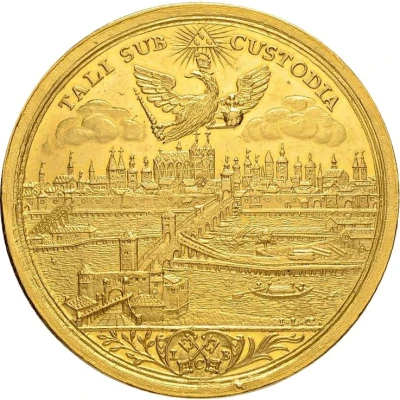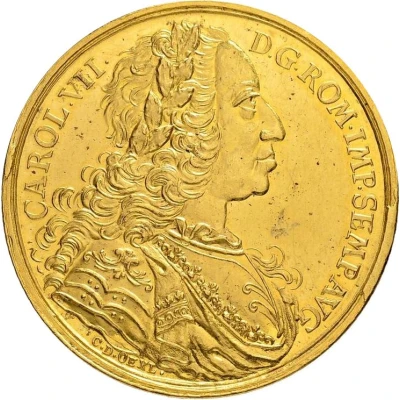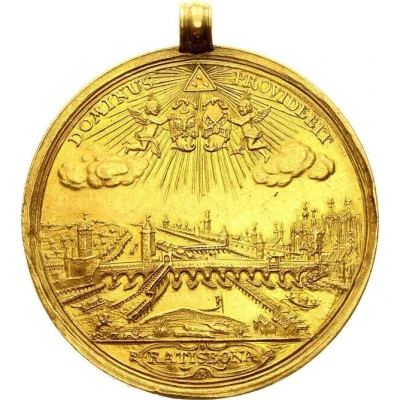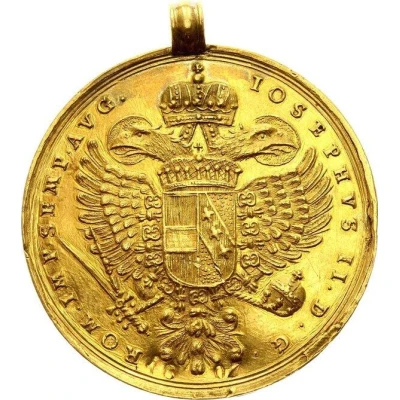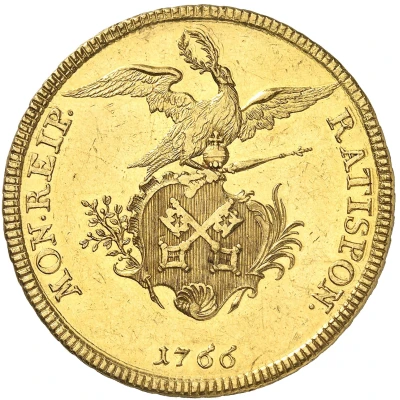
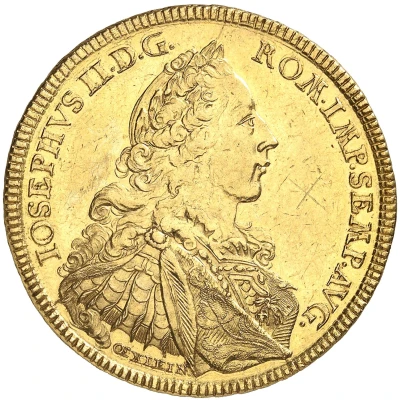

© Fritz Rudolf Künker GmbH & Co. KG, Osnabrück and Lübke & Wiedemann KG, Leonberg
10 Ducats
1766 year| Gold (.986) | 34.84 g | - |
| Issuer | Free city of Regensburg (German States) |
|---|---|
| Period | Free city (1245-1803) |
| Emperor | Joseph II (1765-1790) |
| Type | Standard circulation coin |
| Year | 1766 |
| Value | 10 Ducats |
| Currency | Thaler |
| Composition | Gold (.986) |
| Weight | 34.84 g |
| Shape | Round |
| Technique | Milled |
| Demonetized | Yes |
| Updated | 2024-10-05 |
| Numista | N#199068 |
|---|---|
| Rarity index | 97% |
Reverse
Laureate and armored bust facing right.
Script: Latin
Lettering:
IOSEPHVS II . D . G . ROM . IMP . SEMP . AVG .
OEXLEIN.
Engraver: Johann Leonhard Oexlein
Comment
"Jubilee coins" in gold and silver were issued in honour of the Emperor on April 28, 1766. The Regensburg Mint master, Johann Christoph Busch, had recently died, so the Jubilee coins were minted in Nuremberg with Mint master Johann Leonhard Oexlein. The dies are cut without specifying the value, since both multiple ducats and silver coins had already been minted. According to the mint documents, 604 thalers were produced; the number of gold coins is not specified.Interesting fact
The 10 Ducats 1766 coin from the Free City of Regensburg (German States) is interesting because it was minted during a time of great economic and political change in Europe. The coin was issued during the reign of Emperor Francis I, who was instrumental in the development of the Austrian Empire and the spread of the Enlightenment. The coin's gold content and intricate design make it a valuable collector's item, and its historical significance makes it a fascinating piece of European history.
